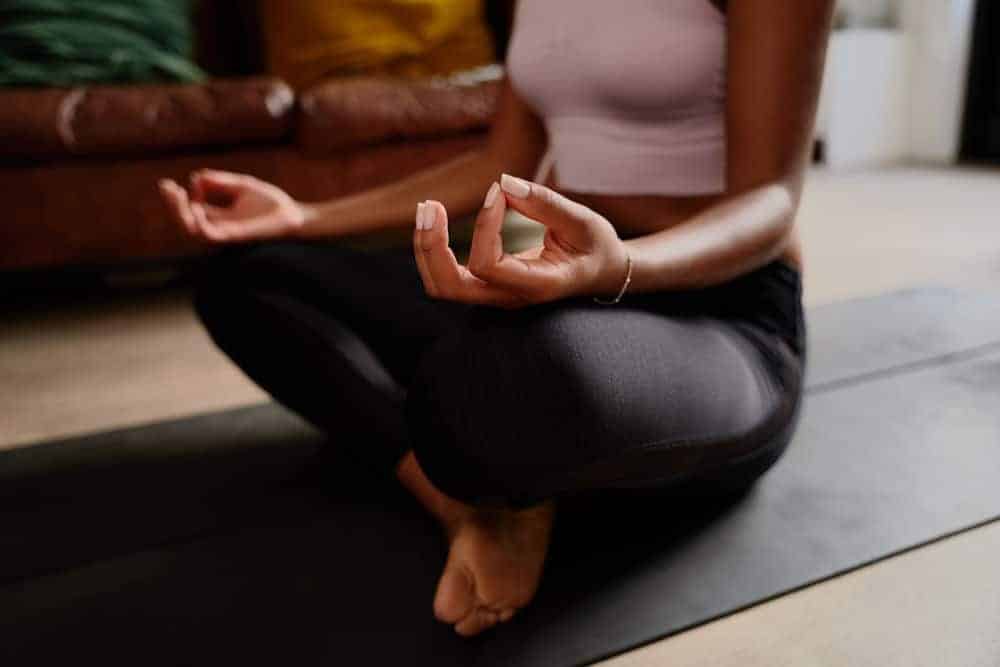
Here at Villa Kali Ma, we celebrate women in every way. We love women fully, without any shade of reservation, as we are now.
Our love for women embraces many stages of life that all women pass through. One such stage of life is menopause, the window of development during which we turn from grown-ups into wisdom-keeping elders.
The present wider culture is stingy with its love for women. Its main attitude towards menopause is to trivialize it, pathologize it, or tease us about the messiness the process requires.
But we do not have to follow the cues of the wider culture, do we? We do not. Let us make our own music from the rhythms and harmonies we discover at play in our own lives, in the lives of women.
In a spirit of loving celebration of our maturing process, here is Villa Kali Ma’s guide to menopause, as it relates to our core topics of addiction, mental illness, and healing.
What is the connection between menopause and alcohol?
Menopause is achieved in the body through the operations of hormones, those indescribably tiny units of electrochemically alive substances that have such a big role in the body.
Alcohol is known to interfere with the natural health and operations of hormones, especially for women, who are more vulnerable biologically to alcohol’s many effects than men. Alcohol wipes out precious stores of needed hormones, makes others inert, causes some to be produced in overabundance, and so on.
When alcohol is relied upon for coping with the choppy waves of emotion that come with menopause, we get pulled into a trap, wherein we are always chasing, and never quite finding, a place of pause between hormonal swells.
If you, or someone you love, is getting entangled in the alcohol trap during menopause, you are not alone! This is a relatively commonplace struggle for women who feel unsupported or alone when called upon to face the many deepening questions that menopause asks of the body, mind, and spirit.
What is menopause?
Menopause is the clinical name for the transition that takes place when women exit the chapter of life in which they were biologically available to become pregnant and give birth to children (at least, the old-fashioned way).
Menopause is, notoriously, the season of life during which we experience hot flashes and mood swings, as well as bodily changes that affect our appearance and our feeling of who we are in the world.
Menopause usually takes place between the ages of 45 and 55, with the average age of menopause being 51. It is considered to have officially taken place once 12 months have gone by since the end of menstruation.
Hormonally speaking, menopause and perimenopause (the stage preceding menopause) involve a gradual reduction of naturally produced estrogen and progesterone, the two main hormones in women’s bodies.
Menopause is, no doubt, a highly biological experience, but it is also colored by many cultural influences. Its suffering is in part made up of how we feel about aging in general, but also the implications of the transformation of the female body to a form less admired within the dominant culture.
In many ways, menopause is closing to the chapter of life that was opened when we went through puberty as adolescents. Everything relating to the adult female body’s potential for bearing children, sexuality, and perceived appeal to others, is touched by this change.
What are the symptoms of menopause?
Menopause has physical impacts as well as emotional effects on women.
At the physical level, the change in hormones and their work in the body can show themselves in certain telltale signs. Here are some of the physical signals that changing hormones are affecting the body:
- Menstrual irregularity
- Hot flashes and night sweats
- Sleep difficulties
- Headaches
- Weight changes
- Itchiness and physical irritability
- Changes in vaginal moisture and sexual arousal
At the level of emotions and thoughts, some common experiences for women during menopause include the following:
- Mourning one’s past, greater awareness of one’s aging, and a feeling of limited remaining time
- Nostalgia or regrets about how the past was spent
- Lowered self-esteem, sadness, and depression due to changing physical appearance or other changes
- Anger, moodiness, and irritability
How does menopause contribute to addiction?
Addiction is always a risk whenever overwhelmingly painful life experiences are encountered, and a woman has not yet had the chance to build up a reliable way of nourishing and comforting herself with healthy tools and habits. To struggle during menopause is enormously common – we all cope and do the best we can – and some of us will be more prone to falling for addiction’s false promises.
Some women may increase their use of prescription medication or start drinking more than she ever would have before menopause. Women who have had drinking or addiction problems in the past may find themselves more prone to be triggered to use again.
Both estrogen and progesterone interact with substance abuse and addiction. With both estrogen and progesterone levels fluctuating during menopause, this can influence subjective experiences of craving or desiring to use substances.
What drugs are most commonly abused by women on menopause?
Women who are pulled into substance abuse during menopause are most likely to use alcohol and/or prescription painkillers, both of which are highly addictive and harm the hormonal change process.
Alcohol and prescriptions tend to be used because they work in the short term to delay emotional and physical pain, which a woman may feel unprepared to process and experience.
It’s important to understand that such attempts to numb or avoid pain are signals from the psyche that help is needed. Rather than permitting substance abuse to carry on and cement into addiction, which is difficult to uproot once it has taken hold, one can instead decide to “get the message” and seek therapeutic support of some kind.
What are the side effects of addiction?
Addiction creates many problems and does not cure the pain of menopause. Rather, substance use interferes with and delays the adaptations the body is attempting to accomplish.
Menopause is a psychologically and sometimes physically difficult process, and ideally, women would have more support for going through it. It is easy to feel alone, depressed, and unsupported while it takes place.
Using substances, instead of helping, will generate a vicious cycle, making depression, anxiety, low self-esteem, and menopause symptoms worse.
Instead of numbing the pain of menopause, therefore, it is highly suggested to find ways to nourish one’s body and soul during the process, with compassion and kindness for the truth of how difficult the experience is.
Some further side effects of addiction include:
- Changes to the brain and nervous system, affecting executive functioning (ability to make decisions), loss of willpower and self-control
- Intense cravings to use substances and increased levels of discomfort when not using substances, eventually leading to an inability to function normally without drugs or alcohol
- Increased obsession with substances, managing use, and consequences of use
- Change of personality to become more negative and unhealthy in thought and emotion, as well more as self-centered
- Life consequences, such as job loss, financial and legal troubles, and erosion of relationships
- Worsening of physical and mental health symptoms, including menopause symptoms
How to deal with severe menopause?

The pain of menopause can be taken as an invitation to greater intimacy with yourself and your needs. To learn to comfort and support yourself from within your own well of resources is ultimately a positive thing.
Likewise, taking constructive and self-responsible action on your own behalf to get help to heal emotionally and feel better physically, can be a transformation in lifestyle that brings many new gifts into your life.
As we learn to radically care for the female body and soul as it goes through these important shifts and changes, we come to a greater understanding of our own uniquely lovable life form.
Here are some ideas for further investigation, which we have found to be supportive for this time of a woman’s physical and emotional journey.
1. Exercise
There is a reason that exercise tops the list of natural health approaches. Moving the body to the point of feeling energized, relaxed, and spent in a good way, triggers the body’s self-restoration mechanisms. Vigorous exercise brings peace of mind, better sleep, and a healthy body.
Choose an exercise format that feels good to your body – as long as you are exhausting yourself through the exercise and gently pushing yourself to raise your fitness level each time you exercise, you will be amply rewarded in your hormonal and neurotransmitter functioning.
2. Diet
Every day, more research surfaces that shed light on the many ways that food affects our physical and mental lives. From gut health and inflammation to immunity and cognition, every circuit of the body is affected by what minerals, vitamins, and other substances we take in.
There are many diets to choose from, so investigate or consult a nutritionist, to find a diet that works for you. Generally speaking, fresh, organic, whole, and nutrient-dense foods will be the way to a feeling of clean, clear sustenance. Genetically modified organisms, added sugars, processed foods, packaged foods, additives, chemicals, and complex carbohydrates are generally suggested to be dropped away from the diet, as possible.
3. Get Support
It is unreasonable to ask that women go through the steep challenges of menopause without someone with whom we can confidentially express emotions. Whether in a support group, among friends, or with a therapist, secure a safe space for unfolding the truth of how you are experiencing your life, without any risk of judgment or pressure to conform. Your menopause is unique and yours to experience, and your emotions are valid.
Villa Kali Ma can help women dealing with menopause and alcoholism

Villa Kali Ma is dedicated to helping women heal, during the sacred window of menopause, and any other stage of life. We offer inpatient and outpatient programs treating substance abuse, mental health struggles, and trauma. If you’re struggling with addiction, mental health problems, or traumatization, while staring down this significant life transition, consider working with us. We’d love to help you find your way along the road.

